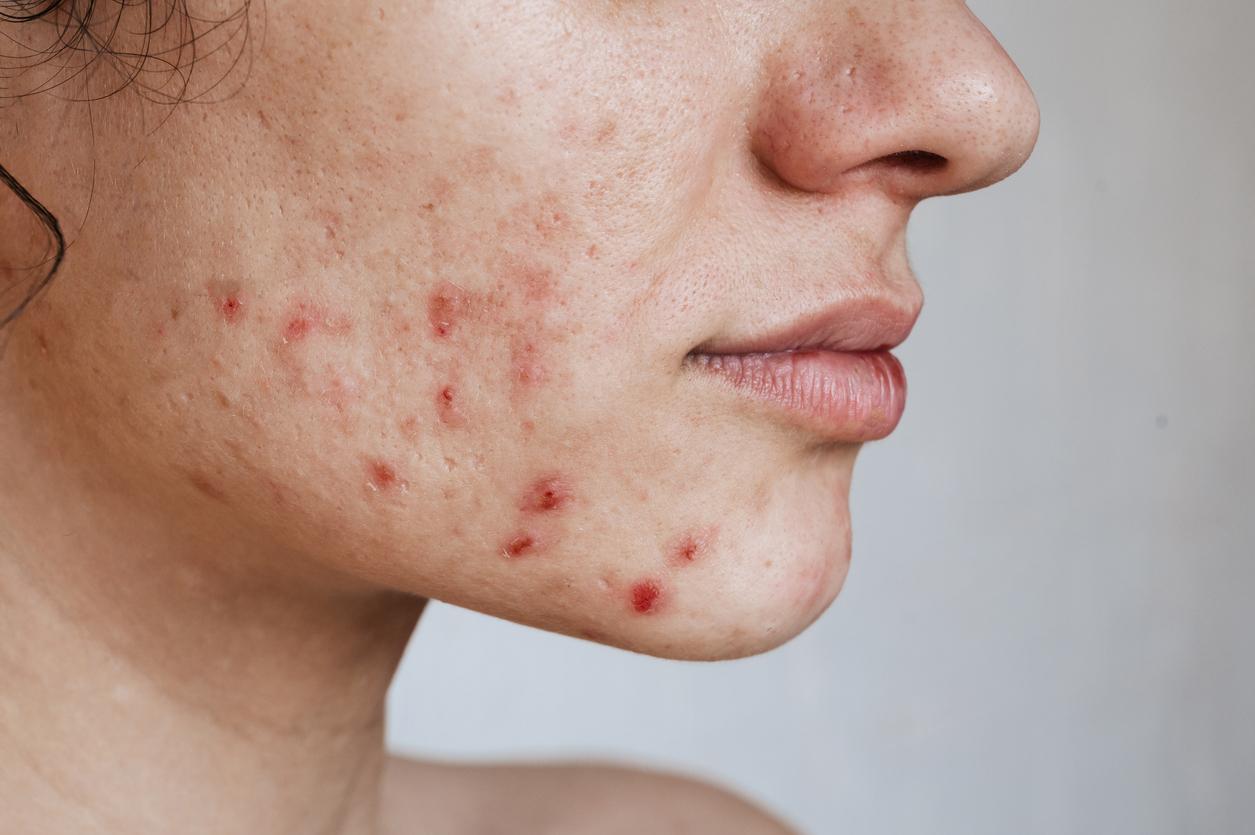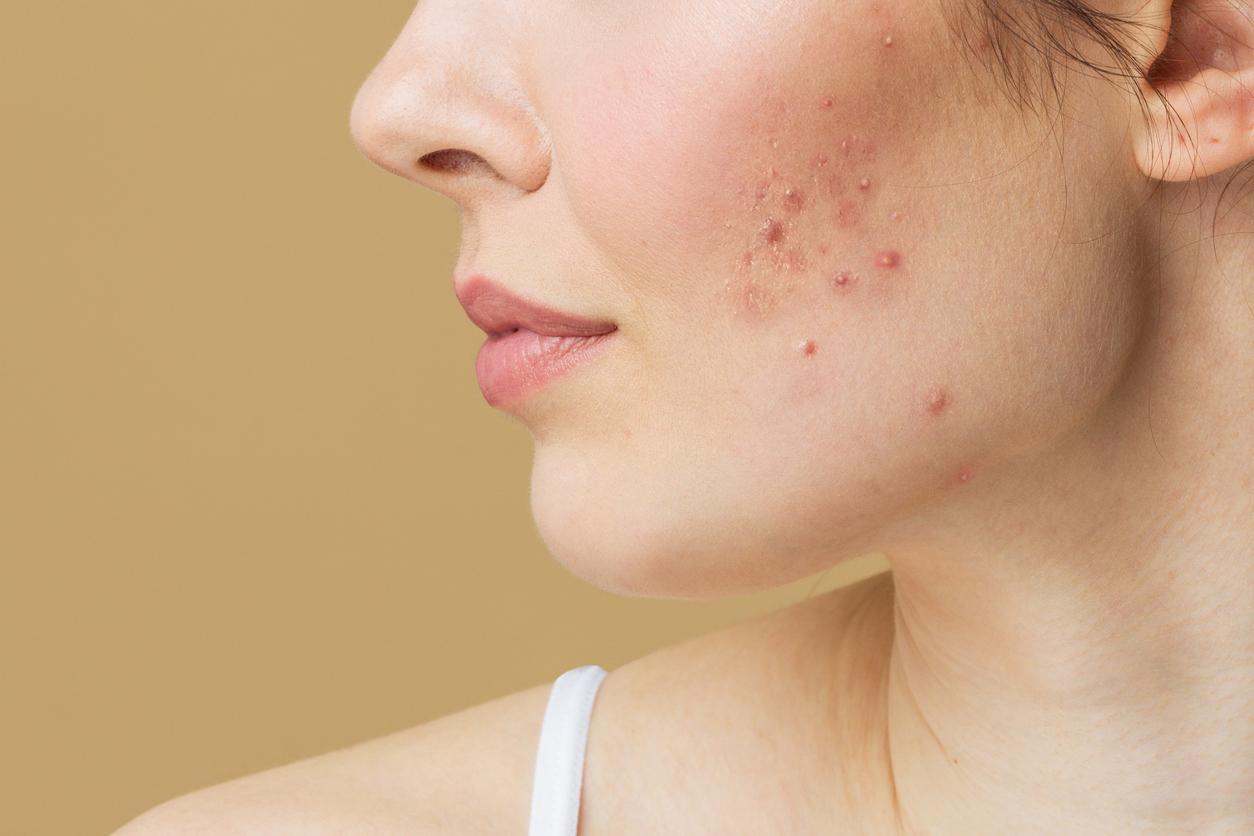Last March, the National Medicines Safety Agency (ANSM) brought together a multidisciplinary committee of experts to consider new actions aimed at strengthening the information of patients and healthcare professionals on the risks associated with the use of medicines containing isotretinoin (Roaccutane, Contracne, Curacne, Procuta). VShe committee was responsible for interviewing patients and families of patients as well as doctors, pharmacists and association actors in order to collect their proposals intended to improve access to information on these risks, in particular teratogenic and psychiatric risks. Written testimonies previously collected from patients and their families had also been sent to the experts.
175 pregnancies under medication each year
Why such a meeting? Because despite the measures put in place to improve the proper use of drugs based on isotretinoin, the number of pregnancies in women treated with these drugs against severe acne remains high. However, the use of these drugs during pregnancy is an absolute contraindicationdue to the very high risk (more than 30%) of serious malformations in the fetus such as abnormalities of the brain, face or heart.
Based on the work of these experts, the ANSM has just published its first recommendations to reduce the risks of isotretinoin-based treatments. She recommends that doctors:
- To schedule two consultations before starting any treatment : “A first consultation would allow the dermatologist to give his patient all the information he needs to decide whether or not to start treatment with isotretinoin. If necessary, the prescription may take place in the context of a second medical consultation.
- Systematically prescribe emergency contraception and condoms (reimbursed), in the case of oral contraception.
- Provide monthly medical follow-up of all patients: “aCurrently, only young girls and women of childbearing age benefit from a monthly medical examination in order to verify the absence of any pregnancy each month (every month a pregnancy test is carried out). We recommend that these monthly visits be extended to all patients, including men, to ensure better monitoring of treatment-related risks.
A 30% risk of fetal malformations
The National Medicines Safety Agency (ANSM) alerts healthcare professionals and patients on the potential risk of neurodevelopmental disorders in the unborn child related to the intake of oral isotretinoin during pregnancy. “Taking oral isotretinoin during pregnancy is associated with a greater than 30% risk of birth defects, such as abnormalities of the brain, face, or heart, in the exposed child. in utero” underlines the Agency.
“Despite the measures put in place, the number of pregnancies exposed to isotretinoin has not decreased since 2010 with approximately 175 pregnancies each year” insists the ANSM. “Furthermore, cases of anxiety or mood changes, depression, or aggravation of depression, including suicide attempts, have been reported in treated patients” emphasizes the Agency, which recalls that the drugs based on isotretinoin should only be prescribed as a last intention and only in the event of failure of conventional treatments (antibiotic therapy and local treatments).
What should be done with isotretinoin?
For the patients of childbearing age :
- Contraception must be started one month before starting treatment and must be continued for another month after stopping treatment (due to the persistence of isotretinoin in the blood).
- A pregnancy test must be carried out before starting the treatment as well as every month when renewing the prescription and when the treatment is issued and the month following the end of the treatment.
- In case of pregnancy occurring during treatment with isotretinoinstop your treatment and see your doctor as soon as possible. The absence of abnormalities visible on ultrasound during pregnancy or at birth does not make it possible to anticipate that the child will not present with disorders, in particular neurodevelopmental disorders such as mental retardation or functional delay. motor skills (balance, walking, etc.).
For all patients:
We must be attentive to the appearance of psychological or psychiatric signs, in particular a depressive syndrome which can manifest itself, for example, by a feeling of sadness, crying spells, suicidal thoughts, a distancing from social or family life.
Source :
- Isotretoin during pregnancy: Neurodevelopmental risk in the absence of birth defects – Evaluation report Reproduction-pregnancy-breastfeeding, ANSM, 02/18/2021
Read also :
- 12 home remedies for acne
- Acne: what’s new to treat it
- 3 factors that can make your acne worse
















